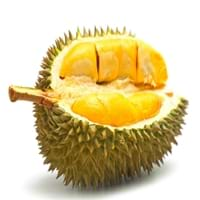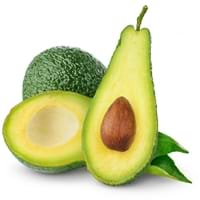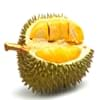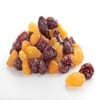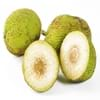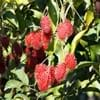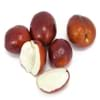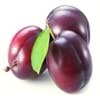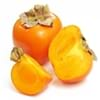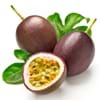Health Benefits
Anti depressant, Boosts immune system, Cancer prevention, Heart care, Reduces stress
Cancer prevention, Natural detoxification, Osteoporosis prevention, Protection from chronic disease
General Benefits
Anti oxidant properties, Anti-inflammatory properties, Boosts immune system, Controls blood pressure, Controls blood sugar levels, Digestive aid, Flu treatment, Strengthens bones
Boosts immune system, Controls blood pressure, Digestive aid, Improves eye vision, Maintains healthy cholesterol level
Skin Benefits
Anti-aging benefits, Brightens and lightens complexion
Brightens and lightens complexion, Reduces wrinkles, Skin cleansing, Treatment of dark spots
Hair Benefits
Promotes longer and healthier hair, Protects hair
Acts as moisturizer, Good conditioner, Protects hair, Regulates hair growth, Rejuvenates scalp, Remedy for split ends, Shiny hair, Softening mask
Allergy Symptoms
Diarrhea, Headaches, Hives, Nasal congestion, Red rash, Runny nose, Vomiting
Abdominal pains, Anaphylaxis, Inflammation, Itching, Latex Allergy, Nasal congestion, Skin Rashes, Swallowing difficulties, Swelling, Upset stomach, Vomiting, Wheezing
Side Effects
Affects blood glucose levels, Nausea, Stomach pain
Allergic reaction, Hypersensitivity, Weight gain
Best Time to Eat
Along with meal, As a snack in the late afternoon, Don't consume at night and before bed, Morning time (before lunch)
Along with meal, As a snack in the late afternoon, Don't consume at night and before bed, Don't eat after meal
Vitamin B5 (Pantothenic Acid)
Vitamin C (Ascorbic Acid)
Vitamin E (Tocopherole)
Not Available
Vitamin K (Phyllochinone)
Not Available
Lutein+Zeaxanthin
Not Available
Phytosterol
Not Available
Calories in Fresh Fruit with Peel
Not Available
Calories in Fresh Fruit without Peel
Not Available
Calories in Canned Form
Not Available
Not Available
Calories in Pie
Not Available
Type
Tree fruit, Tropical
Berry, Tree fruit, Tropical
Varieties
D24, D99 (Gob kecil), D123 (Chanee), D145 (Beserah), D158 (Gan Yau), D159 (Monthong), D169 (Tok Litok), D188, D189, D190, D163 (Hor Lor) and D164 (Ang Bak)
Bacon, Fuerte, Gwen, Hass, Lamb Hass, Pinkerton, Reed and Zutano
Inside Color
Yellow
White
Taste
Creamy, Sweet
Buttery
Origin
South-Eastern Asia
Mexico, Central America
Grows on
Not Available
Trees
Soil Type
Clay
Decomposed Granite, Limestone, Sandy loam, Well-aerated
Climatic Conditions
Hot, Humid
Humid, Without frosts
Facts about
- 1 kg of durian contains 1350 calories which may cause weight gain.
- It may have a hyperthermic effect on the body, making you feel warmer.
- Study shows that durian has an ability to reduce infertility in men & women.
- The oldest living avocado tree is found in University of California and was planted in 1879.
- Avocados can be swapped for butter in Baked Goods Recipes.
- Avocado ripens more quickly with a banana or an apple around.
Top Producer
Thailand
Mexico
Other Countries
Indonesia, Malaysia, Philippines
Chile, China, Colombia, Dominican Republic, Indonesia, Kenya, Mexico, Peru, Rwanda, United States of America
Top Importer
China
United States of America
Top Exporter
Thailand
Mexico
Botanical Name
Durio zibethinus
Persea Americana
Synonym
Lahia Hassk
Persea Gratissima
Subkingdom
Tracheobionta
Tracheobionta
Division
Magnoliophyta
Magnoliophyta
Class
Magnoliopsida
Magnoliopsida
Subclass
Dillenhidae
Magnollidae
Family
Malvaceae
Lauraceae
Species
D. zibethinus
P. Americana
Generic Group
Not Available
Laurel
Difference Between Durian and Avocado
We might think that Durian and Avocado are similar with respect to nutritional value and health benefits. But the nutrient content of both fruits is different. Durian and Avocado Facts such as their taste, shape, color, and size are also distinct. The difference between Durian and Avocado is explained here.
The amount of calories in 100 gm of fresh Durian and Avocado with peel is Not Available and 160.00 kcal and the amount of calories without peel is 147.00 kcal and Not Available respectively. Thus, Durian and Avocado belong to High Calorie Fruits and High Calorie Fruits category.These fruits might or might not differ with respect to their scientific classification. The order of Durian and Avocado is Malvales and Laurales respectively. Durian belongs to Malvaceae family and Avocado belongs to Lauraceae family. Durian belongs to Durio genus of D. zibethinus species and Avocado belongs to Persea genus of P. Americana species. Beings plants, both fruits belong to Plantae Kingdom.
